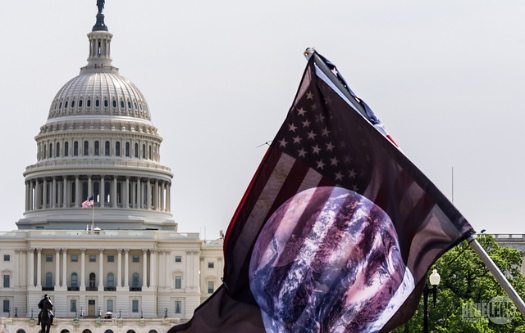
Judging from the reactions of state and local governments and businesses to Trump’s largely gratuitous, purposely provocative announcement that the United States would withdraw from the Paris Climate Agreement, climate activists have done their work well over these last difficult decades.
The announcement stands mainly as an attention grab, since the country cannot actually formally withdraw until November 2020 at the UN, anyway. Even as new French President Emmanuel Macron declares that France is all-in on making the entire planet “great again,” world leaders likely recognize, as we should, that this country is not a monarchy but a democracy that can fill in the gaps with active collective leadership when needed.
President Trump’s decision highlights the fragility of presidential decisions. President Obama announced U.S. support for the Paris climate accord, but did not submit the accord to the Senate for consideration as a formal treaty, fearing its rejection on partisan political grounds. As NPQ addressed last November, without Congressional support, what one president does unilaterally can be unilaterally undone by another president. Obama famously said, “I’ve got a pen and I’ve got a phone,” but so does every president, including Trump.
Trump’s partial justification of his withdrawal of the United States from the Paris Climate accord is that he was elected to represent the residents of “Pittsburgh, not Paris.” The mayor of Pittsburgh objects to that claim. He also says that the work of addressing climate change may need to shift to the states and localities that are doing the real work on the ground, anyway.
New York Governor Andrew Cuomo declared, “As the federal government abdicates its responsibility to address climate change—at the expense of our environment and economy—New York is leading the nation in advancing a clean energy future.” Other elected officials seem to agree: Cuomo, California’s Gov. Jerry Brown, and Washington’s Gov. Jay Inslee announced a coalition convening those U.S. states committed to upholding the Paris Climate Agreement and taking action against climate change. As it happens, about 30 states around the nation have their own formal climate initiatives and standards.
Evidently, many businesses are in accord about the need to fill this vacuum, realizing perhaps that their markets and stakeholders are increasingly and actively concerned about environmental accountability. Among those speaking out yesterday were Goldman Sachs CEO Lloyd Blankfein, Google CEO Sundar Pichai, and Richard Branson of the Virgin Group. Both Elon Musk of Tesla and Robert Iger of Disney resigned from the president’s advisory council after the announcement.
The energy industry was on prominent display among those declaring themselves at odds with the president’s intentions. Shell Oil said it would continue its work with or without the president’s leadership, as did National Grid, whose statement reads, in part:
A clean energy transition is good for our customers and the economy, and the right thing to do. That’s why National Grid remains committed to addressing climate change head on and will continue to support our customers and communities to reduce harmful emissions and better prepare our economy for the future. In recent weeks, we have joined several of the largest US companies to urge President Trump to keep the United States in the Paris Agreement on climate change.
General Electric CEO Jeff Immelt tweeted, “Disappointed with today’s decision on the Paris Agreement. Climate change is real. Industry must now lead and not depend on government.”
Sign up for our free newsletters
Subscribe to NPQ's newsletters to have our top stories delivered directly to your inbox.
By signing up, you agree to our privacy policy and terms of use, and to receive messages from NPQ and our partners.
Readers may remember that this announcement from Trump follows quickly on the heels of the stunning success of a shareholder action at EXXON that requires, over the objections of management, that the company report on the impact of climate change on its business.
The relatively small nonprofit news site Inside Climate News has played a significant strategic role in revealing the behavior of corporations on this issue. As Inside Climate News reports, this epiphany doesn’t come out of the blue; it’s a result of a 28-year-long campaign on the part of climate activists.
The vote at Exxon shows the rapid erosion of support for the company’s defiant stance on climate disclosure, and it caps a shareholder meeting season that saw unprecedented support for greater corporate disclosure on climate change. In recent weeks, shareholders voted in favor of climate risk analysis at two other major energy companies, Occidental Petroleum and PPL, Pennsylvania’s largest utility. Climate-related shareholder resolutions also garnered record support at other big U.S. utilities that rely on fossil fuels: Dominion Resources (47.8 percent), Duke Energy (46.4 percent) and DTE Energy (45 percent).
Investor pressure on energy companies has rapidly intensified:
Institutional investors argue that climate risk is a long-term financial risk that should be integrated into financial reporting.
BlackRock, the world’s largest investment firm, with $5.1 trillion in assets under management, and several major global investors—including State Street, Aviva, and Legal & General—have signaled that they want more transparency on climate change risk. BlackRock’s first vote against corporate management on climate came this year against Occidental, where it was the largest institutional investor.
“I think we are witnessing a truly historic shift in shareholder support for these resolutions,” said Andrew Logan, director of the oil and gas program at Ceres, a nonprofit that works with institutional investors on sustainability issues. “It’s a sign that the world is getting ahead of the oil industry. When you have very conservative institutions like BlackRock and Vanguard taking these positions, you know the issue has changed in some fundamental way.”
Notably, since this latest move from the administration was couched as a protection for American workers, the president of the AFL-CIO labor union federation, Richard Trumka, characterized the withdrawal as “a failure of American leadership.”
We could go on, but you get the picture—this country is far from leaderless, but its leadership has always been collective and multi-layered. We just got a chance, right now, to exhibit that to the world (and ourselves) after decades of activism on issues of global and local importance. For that, we can thank the civil sector and the climate advocates who have worked hard for decades to get a previously unrecognized problem recognized and acted upon.















